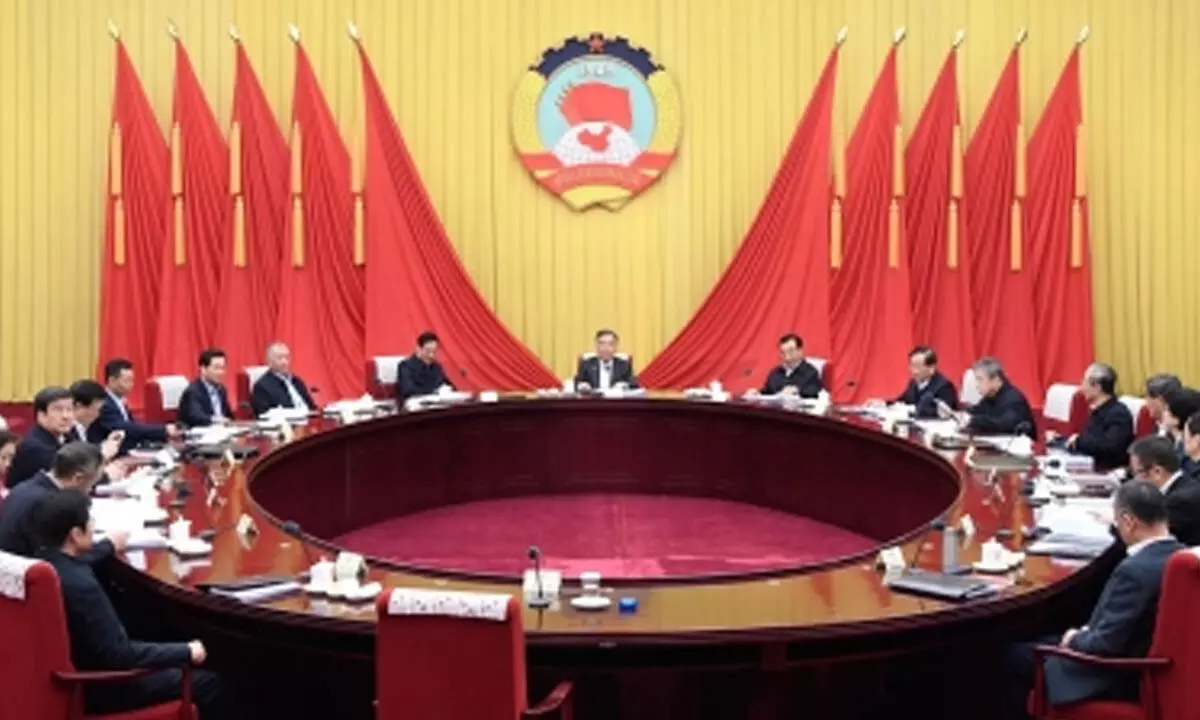Live
- Heavy rains forecast at isolated places in AP
- Paediatricians raise alarm over spread of HFMD in Prakasam
- Cong demands Shah’s expulsion
- One-man panel to visit three districts from Dec 27
- Monitor investments, creation of jobs: CS
- Hyderabad: City-based Karaoke group feted by Rafi family
- Rachakonda sees uptick in murders, kidnappings; overall crime rate rises
- Hyderabad: Police bust drug racket, three land behind bars
- HC extends Sengar’s interim bail till Jan 20
- Foundation stone laid for drinking water pipeline
Just In
Former chairman of China National Petroleum Corporation expelled from CPC

Wang Yilin, former chairman of the China National Petroleum Corporation (CNPC), has been expelled from the Communist Party of China (CPC) over serious violations of Party disciplines and laws, authorities said on Wednesday.
Beijing: Wang Yilin, former chairman of the China National Petroleum Corporation (CNPC), has been expelled from the Communist Party of China (CPC) over serious violations of Party disciplines and laws, authorities said on Wednesday.
The decision was made following an investigation by the CPC Central Commission for Discipline Inspection and the National Commission of Supervision, with the approval of the CPC Central Committee, according to an official statement released by the anti-graft authority.
The statement said Wang, who was also the former secretary of the leading Party members group of the CNPC, had lost his ideals and convictions, associated with political swindlers, and refused to cooperate during the investigation. Wang repeatedly accepted invitations to trips arranged by private business owners and received gifts and money in violation of the central Party leadership's eight-point decision on improving conduct. He also sought benefits for others in employee recruitment.
In addition, Wang also took advantage of his position to benefit others in job promotion, project contracting and business operations, illegally accepting huge amounts of money and valuables in return. He was also accused of allowing his relatives to use his power and influence for personal gains.
According to the statement, Wang's acts constituted severe breaches of Party disciplines and serious duty-related violations, as well as the suspected crime of taking bribes, Xinhua news agency reported.
Wang's illicit gains will be confiscated and his case will be transferred to the procuratorial authorities for examination and prosecution in accordance with the law, the statement said.

© 2024 Hyderabad Media House Limited/The Hans India. All rights reserved. Powered by hocalwire.com






